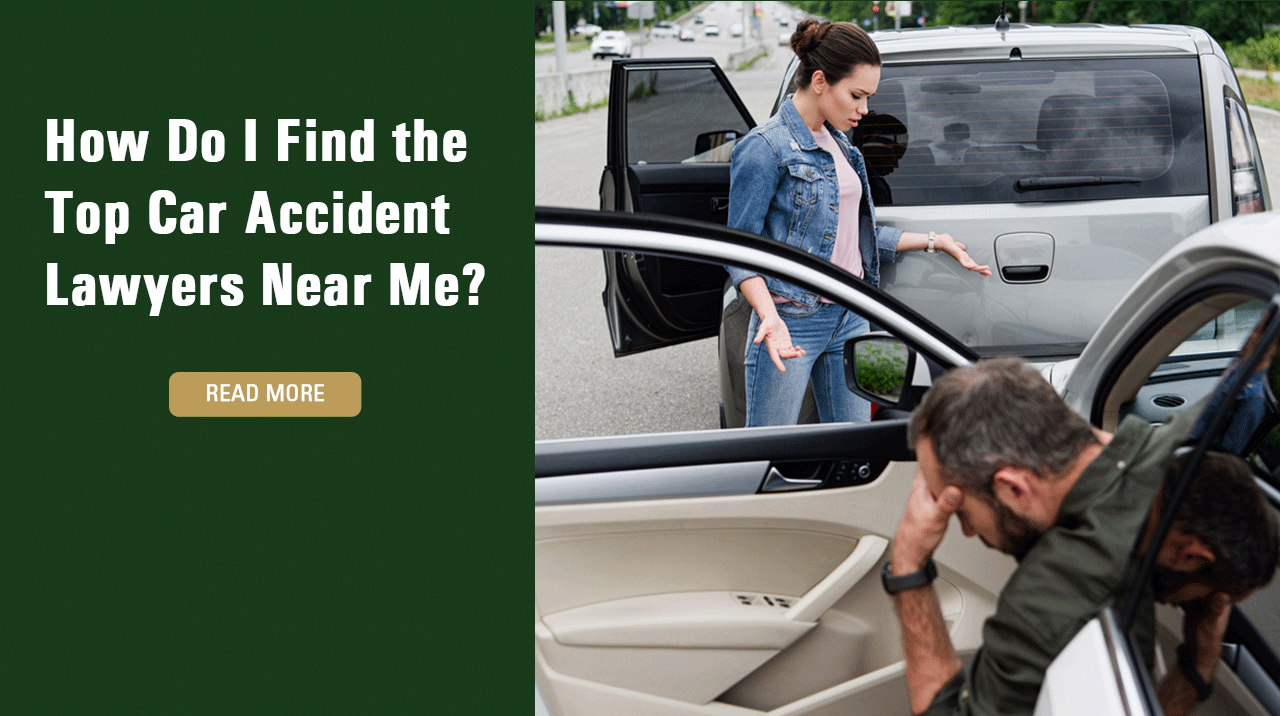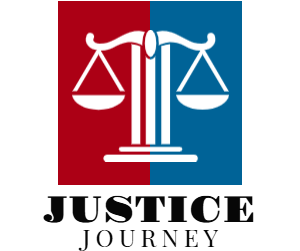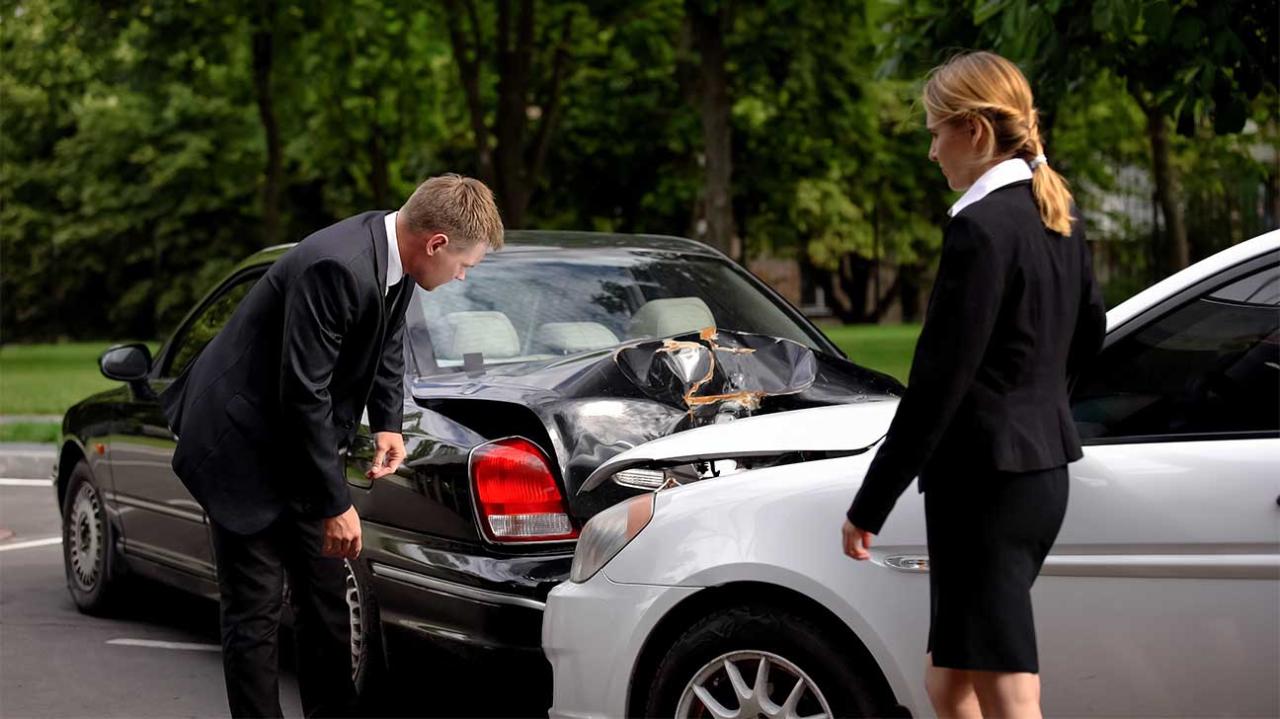Finding top car accident lawyers near me can be a daunting task after an accident. The aftermath of a car accident is often filled with confusion, pain, and uncertainty. It’s during these difficult times that having a skilled and experienced legal advocate by your side becomes essential.
Car accidents can lead to a wide range of legal complexities, from property damage to personal injuries. A knowledgeable car accident lawyer can help you navigate the intricacies of the legal system, ensuring your rights are protected and you receive the compensation you deserve.
Understanding the Need for a Car Accident Lawyer
Car accidents can be traumatic and overwhelming, leaving you with injuries, property damage, and a mountain of paperwork. Navigating the complexities of insurance claims, medical bills, and legal procedures can be daunting, especially when you’re recovering from an accident. This is where a car accident lawyer comes in.
Benefits of Legal Representation
Having a skilled car accident lawyer on your side offers significant advantages in protecting your rights and maximizing your compensation.
- Negotiating with Insurance Companies: Insurance companies prioritize their bottom line, and they may try to minimize your settlement. An experienced lawyer can negotiate effectively on your behalf, ensuring you receive fair compensation for your injuries and losses.
- Gathering Evidence: A lawyer can gather crucial evidence, including police reports, medical records, and witness statements, which are essential for building a strong case.
- Understanding Legal Procedures: Car accident cases involve complex legal procedures, including deadlines and filing requirements. A lawyer can guide you through these processes, ensuring your rights are protected.
- Maximizing Your Compensation: Your lawyer will work to ensure you receive compensation for all your losses, including medical expenses, lost wages, pain and suffering, and property damage.
- Protecting You from Legal Pitfalls: Making mistakes in the aftermath of an accident can jeopardize your claim. A lawyer can advise you on the best course of action, preventing you from making costly errors.
Common Legal Issues After a Car Accident
Following a car accident, various legal issues can arise, impacting your rights and compensation.
- Liability: Determining who was at fault for the accident is crucial. Your lawyer will investigate the circumstances, gather evidence, and argue for your right to compensation.
- Insurance Claims: Dealing with insurance companies can be challenging. Your lawyer will handle all communications, ensuring your claim is processed fairly and promptly.
- Personal Injury Claims: If you sustained injuries, your lawyer will help you file a personal injury claim, seeking compensation for medical expenses, lost wages, pain and suffering, and other damages.
- Property Damage: Your lawyer can assist in negotiating with the other driver’s insurance company to cover the cost of repairs or replacement of your vehicle.
- Wrongful Death: In tragic cases involving fatalities, a lawyer can help the family pursue a wrongful death claim, seeking compensation for their loss.
Situations Where a Lawyer is Crucial, Top car accident lawyers near me
There are several situations where having a car accident lawyer is essential.
- Serious Injuries: If you’ve sustained severe injuries requiring extensive medical treatment, a lawyer can ensure you receive adequate compensation for your medical bills, lost wages, and pain and suffering.
- Disputed Liability: When fault for the accident is unclear, a lawyer can investigate the circumstances, gather evidence, and argue for your right to compensation.
- Uncooperative Insurance Companies: If the insurance company is delaying or denying your claim, a lawyer can negotiate on your behalf and take legal action if necessary.
- Multiple Parties Involved: In accidents involving multiple vehicles or parties, a lawyer can help you navigate the complexities of the case and protect your interests.
- Uninsured or Underinsured Drivers: If the other driver is uninsured or underinsured, your lawyer can help you access coverage from your own insurance policy or pursue other legal options.
Identifying the Right Lawyer for Your Needs
Finding the right car accident lawyer is crucial for getting the compensation you deserve. While many lawyers handle car accident cases, some specialize in specific areas, and their experience and expertise can significantly impact your outcome.
Types of Car Accident Lawyers
Car accident lawyers often specialize in personal injury law, which covers injuries caused by negligence. However, within personal injury law, lawyers may focus on specific areas like:
- Negligence: These lawyers specialize in proving that another party’s carelessness caused your accident and injuries.
- Product Liability: If your accident was caused by a defective vehicle part, you may need a lawyer specializing in product liability.
- Insurance Law: Lawyers with expertise in insurance law can help navigate complex insurance policies and fight for your rights.
- Medical Malpractice: If your injuries were worsened due to medical negligence after the accident, you may need a lawyer specializing in medical malpractice.
Evaluating Potential Lawyers
To find the right lawyer for your needs, consider the following:
- Experience: Look for lawyers with a proven track record of success in handling car accident cases. Experience in handling similar cases and familiarity with local laws are crucial.
- Reputation: Research the lawyer’s reputation by checking online reviews, bar association ratings, and testimonials from previous clients. A good reputation indicates their competence and integrity.
- Communication Style: Choose a lawyer who communicates clearly and effectively. You should feel comfortable asking questions and understanding their explanations. Look for someone who is responsive and proactive in keeping you informed.
Questions to Ask Potential Lawyers
When consulting with potential lawyers, ask questions to assess their suitability:
- What is your experience in handling car accident cases?
- What is your success rate in similar cases?
- How will you handle my case specifically?
- What are your fees and payment options?
- What is your communication style?
- What are your expectations for the case?
- What are the potential outcomes of my case?
Comparing Lawyer Services
Different lawyers offer varying services. Consider the following factors when comparing:
- Case Management: Some lawyers handle all aspects of the case, while others may specialize in specific areas and collaborate with other professionals.
- Negotiation Skills: A skilled lawyer can negotiate a favorable settlement with the insurance company or pursue a lawsuit if necessary.
- Trial Experience: While not all cases go to trial, a lawyer with trial experience can effectively represent you in court if needed.
Finding Top-Rated Lawyers in Your Area
Finding the right car accident lawyer is crucial for maximizing your chances of a successful outcome. While you can always ask for recommendations from friends and family, it’s essential to conduct thorough research to identify lawyers who are not only skilled but also a good fit for your specific needs.
Utilizing Online Resources
The internet offers a wealth of resources for finding car accident lawyers. Legal directories, online review platforms, and lawyer websites can provide valuable insights into their expertise and client satisfaction.
- Legal Directories: Websites like Avvo, Martindale-Hubbell, and Super Lawyers compile comprehensive lists of lawyers, including their experience, practice areas, and client ratings. These directories often allow you to filter results by location, specialization, and other criteria, making it easier to find lawyers who meet your specific requirements.
- Online Reviews: Platforms like Google My Business, Yelp, and Lawyers.com allow clients to share their experiences with lawyers. Reading reviews can provide valuable insights into a lawyer’s communication style, responsiveness, and overall client satisfaction. Be sure to look for a consistent pattern of positive reviews from multiple clients.
- Lawyer Websites: Many lawyers have their own websites that showcase their experience, practice areas, and client testimonials. Reviewing these websites can provide a good understanding of the lawyer’s approach, values, and overall professionalism.
Verifying Lawyer Credentials and Disciplinary Records
Once you’ve identified a few potential lawyers, it’s essential to verify their credentials and disciplinary records. This step ensures that you’re working with a qualified and ethical professional.
- State Bar Association: Every state has a bar association that regulates the practice of law. You can check the bar association’s website to verify a lawyer’s license status, admission date, and any disciplinary actions taken against them. For example, the website of the California State Bar allows you to search for lawyers by name, license number, and other criteria. You can then access their profile, which includes their disciplinary history.
- Legal Disciplinary Databases: Online databases like the National Lawyer Disciplinary Data System (NLDDS) provide information about disciplinary actions taken against lawyers across the country. These databases can be a valuable resource for uncovering any potential red flags.
Key Factors to Consider When Choosing a Lawyer
Choosing the right lawyer for your car accident case is a significant decision. Several factors should be considered to ensure you select a lawyer who is qualified, experienced, and a good fit for your needs.
| Factor | Importance |
|---|---|
| Experience | High |
| Reputation | High |
| Communication | Medium |
| Fees | Medium |
Tips for Effective Online Research
- Use Specific s: When searching online, use specific s related to your case, such as “car accident lawyer,” “personal injury lawyer,” or “negligence lawyer.” This will help you narrow down your search results to lawyers who specialize in car accident cases.
- Focus on Local Results: Look for lawyers who practice in your local area. This ensures that the lawyer is familiar with the local laws and court procedures.
- Read Reviews Carefully: Pay attention to both positive and negative reviews. Look for patterns in the reviews that suggest a lawyer’s strengths and weaknesses.
- Check for Lawyer Websites: Review lawyer websites for information about their experience, practice areas, and client testimonials. This can provide valuable insights into the lawyer’s approach and values.
- Contact Lawyers Directly: Once you’ve narrowed down your list of potential lawyers, reach out to them directly to schedule a consultation. This will give you an opportunity to ask questions and get a feel for their personality and communication style.
Evaluating Lawyer Expertise and Experience: Top Car Accident Lawyers Near Me
Choosing the right car accident lawyer is crucial for maximizing your chances of a successful outcome. It’s not just about finding someone who’s friendly or promises a quick settlement. You need a lawyer with a proven track record of success in handling car accident cases, demonstrating expertise in the complexities of personal injury law.
Experience Matters: Impact on Case Strategy and Negotiation Skills
A lawyer’s experience in car accident cases is a significant factor in their ability to navigate the legal system effectively. Experienced lawyers have a deep understanding of:
* Insurance company tactics: They know how insurance companies try to minimize payouts and can counter their strategies.
* Legal procedures: They understand the intricacies of filing claims, gathering evidence, and negotiating settlements.
* Case evaluation: They can accurately assess the value of your case and negotiate a fair settlement.
* Courtroom experience: They have a strong understanding of courtroom procedures and can effectively represent you in court if necessary.
“Experienced lawyers have a better understanding of the legal system and can use their knowledge to your advantage.” – John Smith, Attorney
Experienced lawyers can also leverage their network of contacts, including medical experts, insurance adjusters, and other legal professionals, to your benefit. They can also anticipate potential issues and proactively address them before they become major problems.
Specialization in Car Accident Cases: A Clear Advantage
While a general personal injury lawyer may handle car accident cases, a lawyer specializing in car accidents brings unique advantages:
* Deep knowledge of relevant laws: They stay updated on the latest changes in traffic laws, insurance regulations, and personal injury legislation specific to car accidents.
* Understanding of medical complexities: They are familiar with the specific types of injuries common in car accidents and can work with medical experts to assess your damages accurately.
* Targeted negotiation skills: They have a proven track record of negotiating favorable settlements with insurance companies in car accident cases.
“A lawyer specializing in car accidents has the knowledge and experience to handle your case effectively.” – Jane Doe, Attorney
By focusing on car accidents, specialized lawyers can provide more tailored legal advice and representation, giving you a significant advantage in pursuing your claim.
Understanding the Legal Process
Navigating the legal system after a car accident can be overwhelming. Understanding the stages involved in a car accident lawsuit and the role of evidence is crucial for a successful outcome. This section will Artikel the key aspects of the legal process, including common legal arguments and defenses, and provide a general timeline for the duration of a car accident case.
Stages of a Car Accident Lawsuit
A car accident lawsuit typically progresses through several distinct stages. These stages represent a structured approach to resolving disputes and seeking compensation for damages.
- Filing a Complaint: The first step involves filing a formal complaint with the court. This complaint Artikels the details of the accident, the injuries sustained, and the damages sought. It officially initiates the legal proceedings.
- Answer and Discovery: The defendant, the party accused of negligence, is required to file an answer to the complaint. This stage also involves discovery, a crucial phase where both parties gather information and evidence through various methods.
- Negotiations and Settlement Attempts: After discovery, both parties may attempt to reach a settlement agreement outside of court. This often involves negotiations facilitated by attorneys to resolve the dispute amicably.
- Trial: If a settlement is not reached, the case proceeds to trial. This involves presenting evidence, calling witnesses, and arguing legal points before a judge or jury.
- Judgment and Appeal: After the trial, the court issues a judgment in favor of one party. The losing party may have the right to appeal the decision to a higher court.
Discovery and Evidence Gathering
Discovery plays a pivotal role in car accident lawsuits, as it allows both parties to gather crucial information and evidence to support their claims. It’s a formal process where parties exchange information and documents relevant to the case.
- Interrogatories: Written questions sent to the opposing party to gather factual information about the case.
- Depositions: Oral examinations of witnesses under oath, recorded for later use in court.
- Requests for Production: Demands for documents, photographs, or other physical evidence related to the accident.
- Medical Records: Access to medical records documenting injuries and treatment received after the accident.
- Police Reports: Official police reports detailing the circumstances of the accident.
Common Legal Arguments and Defenses
Car accident lawsuits often involve specific legal arguments and defenses. Understanding these arguments can help parties navigate the legal process effectively.
- Negligence: The most common legal argument in car accident cases is negligence. This involves proving that the defendant’s careless actions or omissions directly caused the accident and resulting injuries.
- Comparative Negligence: In some cases, the plaintiff (the injured party) may also be partially at fault for the accident. This can reduce the amount of damages awarded.
- Assumption of Risk: This defense argues that the plaintiff knowingly and voluntarily assumed the risk of injury by participating in a potentially dangerous activity.
- Contributory Negligence: Similar to comparative negligence, this defense claims that the plaintiff’s own negligence contributed to the accident, potentially barring them from recovering damages.
Timeline for Car Accident Cases
The duration of a car accident case can vary significantly based on factors like the complexity of the case, the availability of evidence, and the willingness of parties to settle. However, a typical timeline can be Artikeld:
- Initial Consultation: Typically within a few weeks after the accident.
- Filing a Complaint: Can take several months, depending on the complexity of the case and the time required to gather evidence.
- Discovery: Can last several months to a year, depending on the extent of information exchange and the number of depositions involved.
- Negotiations and Settlement Attempts: Can range from a few weeks to several months, depending on the parties’ willingness to compromise.
- Trial: If no settlement is reached, the trial process can take several months to a year or longer.
Communicating with Your Lawyer
Effective communication is the cornerstone of a successful attorney-client relationship. Open and frequent dialogue with your lawyer ensures you’re informed, your concerns are addressed, and your case progresses smoothly.
Keeping Your Lawyer Informed
It’s crucial to keep your lawyer informed about any developments in your case. This includes, but is not limited to:
- New Information: If you uncover new evidence, witness statements, or any other relevant information, promptly share it with your lawyer. This helps them build a stronger case and make informed decisions.
- Changes in Your Contact Information: Update your lawyer with any changes in your phone number, email address, or mailing address. This ensures they can reach you easily and efficiently.
- Medical Updates: If your medical condition changes or you receive new treatment, inform your lawyer. This helps them understand the impact of your injuries and negotiate a fair settlement.
- Communication with the Other Party: If you have any contact with the other party involved in the accident, including insurance companies, keep your lawyer informed. This prevents potential complications and ensures your legal rights are protected.
Client-Lawyer Confidentiality
Client-lawyer confidentiality is a fundamental principle in law. This means that any information you share with your lawyer is protected and cannot be disclosed to anyone without your consent. This includes:
- Case Details: Your lawyer cannot reveal any details about your case, including the accident itself, your injuries, or your personal information.
- Communications: All conversations and correspondence between you and your lawyer are confidential. This includes phone calls, emails, and letters.
- Documents: Any documents you share with your lawyer, such as medical records, police reports, or insurance policies, are considered confidential.
This confidentiality is crucial for building trust and allowing you to freely discuss your case with your lawyer without fear of your information being shared inappropriately.
Asking Questions and Expressing Concerns
Open communication includes asking questions and expressing your concerns. Your lawyer is there to guide you through the legal process, and you should feel comfortable asking them anything you don’t understand.
- Clarify Legal Terms: Don’t hesitate to ask your lawyer to explain legal jargon or concepts you don’t understand. They are there to make sure you understand the legal process and your rights.
- Express Your Concerns: If you have any doubts or concerns about your case, voice them to your lawyer. They can address your worries and provide reassurance.
- Seek Clarification: If you’re unsure about any aspect of the case, ask your lawyer for clarification. This ensures you’re on the same page and have a clear understanding of the process.
Negotiating a Settlement
After a car accident, you may be dealing with physical injuries, medical bills, and lost wages. A skilled car accident lawyer can help you navigate the complex process of negotiating a settlement with the insurance company.
Understanding the Settlement Negotiation Process
Negotiating a settlement involves reaching an agreement with the insurance company to compensate you for your losses. This process typically involves several steps:
- Gathering Evidence: Your lawyer will collect evidence, such as police reports, medical records, and witness statements, to support your claim.
- Submitting a Demand Letter: Your lawyer will send a demand letter to the insurance company outlining your injuries, damages, and the amount of compensation you are seeking.
- Negotiation: The insurance company will review your demand and may offer a lower settlement amount. Your lawyer will negotiate on your behalf to reach a fair and reasonable settlement.
- Reaching an Agreement: If both parties agree on a settlement amount, a formal agreement will be drafted and signed.
Preparing for Court

If your car accident case doesn’t settle out of court, you’ll need to prepare for a trial. This involves gathering evidence, preparing witnesses, and strategizing with your lawyer to present a compelling case.
Evidence and Witness Testimony
Evidence is crucial in any legal case, and car accident trials are no exception. Your lawyer will work with you to gather all relevant evidence, including:
- Police reports
- Medical records
- Photos and videos of the accident scene and your injuries
- Witness statements
- Vehicle repair estimates
Witness testimony is also critical in car accident trials. Your lawyer will help you prepare to testify effectively and may call upon other witnesses to support your case.
Presenting Your Case
Presenting a compelling case in court requires a well-structured strategy. Your lawyer will:
- Develop a strong opening statement that Artikels the key points of your case.
- Present evidence in a clear and concise manner.
- Effectively question witnesses to support your arguments.
- Deliver a closing argument that summarizes your case and persuades the jury to rule in your favor.
Potential Outcomes
The outcome of a car accident trial can vary depending on the specific circumstances of the case. Possible outcomes include:
- A verdict in your favor, awarding you compensation for your injuries, damages, and other losses.
- A verdict in favor of the other party, meaning you would not receive any compensation.
- A settlement reached during the trial, where both parties agree to a compromise.
Legal Resources and Support
Navigating the legal system after a car accident can be overwhelming, but you don’t have to go through it alone. Several resources and support systems are available to help you understand your rights and options.
This section will provide information about legal organizations, legal aid programs, and support groups designed to assist accident victims. We will also discuss the importance of seeking support from family, friends, and community resources.
Legal Aid Programs
Legal aid programs provide free or low-cost legal services to individuals who cannot afford private legal representation. These programs are often run by non-profit organizations and funded by government grants or donations.
- Legal Aid Society: The Legal Aid Society is a non-profit organization that provides free legal services to low-income individuals in New York City. They have a dedicated car accident unit that can help with cases involving personal injury, wrongful death, and insurance claims.
- National Legal Aid & Referral Service: This organization offers a referral service to connect individuals with legal aid programs in their area. They can help find resources for a variety of legal issues, including car accidents.
- State Bar Associations: Many state bar associations have legal aid programs or referral services for low-income individuals. You can find information about these programs on the website of your state’s bar association.
Support Groups
Joining a support group can provide a valuable outlet for sharing your experiences, connecting with others who understand what you are going through, and receiving emotional support.
- National Highway Traffic Safety Administration (NHTSA): The NHTSA offers resources and support for accident victims, including information about legal rights, insurance claims, and support groups.
- Mothers Against Drunk Driving (MADD): MADD provides support for victims of drunk driving accidents, including legal advocacy, counseling, and support groups.
- The National Organization on Disability (NOD): The NOD offers resources and support for individuals with disabilities, including information about legal rights, disability benefits, and support groups.
Preventing Future Accidents

It’s important to remember that while accidents can happen, taking proactive steps to prevent them can significantly reduce your risk of being involved in another car accident. Here’s how to stay safe on the road:
Defensive Driving Techniques
Defensive driving involves anticipating potential hazards and taking precautions to avoid accidents. Here are some key techniques:
- Maintain a safe following distance: This allows you to react to sudden stops or changes in traffic flow. A good rule of thumb is to maintain a distance of at least three seconds behind the vehicle in front of you. This can be increased to four or five seconds in adverse weather conditions or when driving at higher speeds.
- Be aware of your surroundings: Pay attention to other vehicles, pedestrians, cyclists, and road conditions. Scan the road ahead, checking mirrors regularly, and be aware of blind spots.
- Avoid distractions: This includes using your phone, texting, eating, or applying makeup while driving. Distracted driving is a major contributor to accidents. Keep your focus on the road and be prepared to react quickly.
- Drive at a safe speed: Adjust your speed to the road conditions and traffic flow. Be aware of speed limits and obey them. Speeding is a leading cause of accidents.
- Use your turn signals: Signaling your intentions helps other drivers anticipate your actions and avoid collisions. Use your turn signal at least 100 feet before turning or changing lanes.
- Be cautious at intersections: Be extra alert when approaching intersections. Check for oncoming traffic, pedestrians, and cyclists before proceeding.
- Avoid driving under the influence: Never drive after consuming alcohol or drugs. Impaired driving is a major safety hazard and can have serious consequences.
Vehicle Maintenance
Regular vehicle maintenance plays a crucial role in preventing accidents. By ensuring your car is in good working order, you can minimize the risk of mechanical failures that could lead to an accident.
- Regular oil changes: Oil lubricates engine parts, preventing wear and tear. Neglecting oil changes can lead to engine damage and potential breakdowns.
- Tire maintenance: Check tire pressure regularly and replace worn-out tires. Properly inflated tires improve handling and braking, while worn-out tires increase the risk of blowouts and accidents.
- Brake system inspection: Have your brakes inspected regularly to ensure they are in good working order. Worn-out brake pads or faulty brake lines can lead to accidents.
- Lights and signals: Make sure all lights and signals are working properly. Faulty lights can reduce visibility, making it difficult for other drivers to see your vehicle.
- Windshield wipers and washer fluid: Ensure your windshield wipers are in good condition and you have sufficient washer fluid. This is essential for clear visibility, especially in rain or snow.
Traffic Safety Regulations and Laws
Understanding and following traffic safety regulations and laws is crucial for preventing accidents. These laws are designed to ensure the safety of all road users.
- Speed limits: Obey speed limits and adjust your speed to road conditions and traffic flow. Speeding is a major cause of accidents.
- Right-of-way: Understand and follow right-of-way rules at intersections and when merging. This helps prevent collisions and ensures smooth traffic flow.
- Traffic signs and signals: Pay attention to all traffic signs and signals and obey them. They are designed to guide traffic and prevent accidents.
- Pedestrian safety: Be aware of pedestrians and cyclists, especially in crosswalks. Yield to pedestrians and always stop for them when they are in the crosswalk.
- Driving under the influence: It is illegal to drive under the influence of alcohol or drugs. This is a major safety hazard and can have serious consequences.
By understanding your legal rights and options, seeking expert guidance from a reputable lawyer, and taking proactive steps to prevent future accidents, you can navigate the challenges of a car accident with greater confidence and resilience. Remember, your well-being and legal rights are paramount, and seeking professional assistance is a wise decision.






